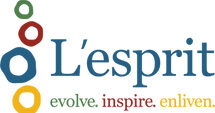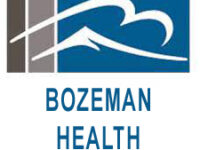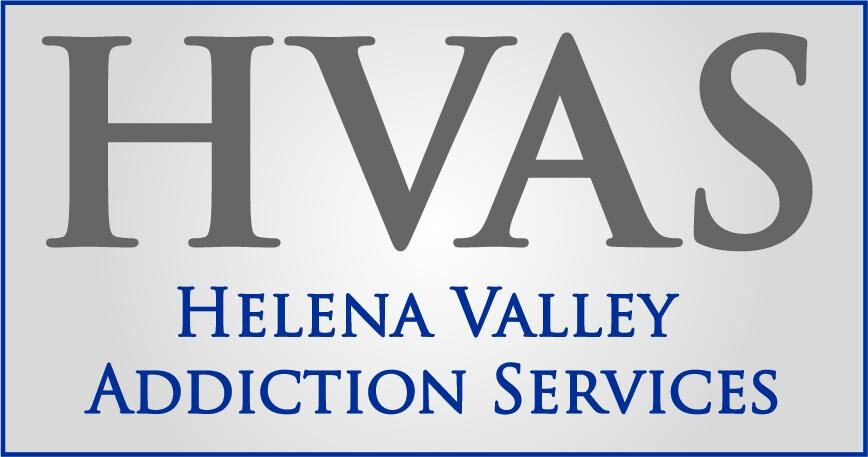In looking at other state plans for peer services, Montana’s Peer Network quickly identified the need for standardization of peer services in Montana. That’s when the “Montana Peer Support Task Force was born. In 2012, The Addictive and Mental Disorder Division and Montana’s Peer Network collaborated to form the task force with the aim “to support and enhance the professional field of peer support for people in the process of recovery from substance use, other addictions, mental illness, or co-occurring disorders.” The task force was able to achieve its mission and goals and Governor Bullock signed Behavioral Health Peer Supporter Certification on March 31, 2017. (View the bill and legislative details here.)
The standardization of peer services ensures the following key qualities:
- Public Safety concerns are addressed such as professionalism
- Standardized training, supervision and continuing education for all peer workers
- Workforce development
- Establishment of a recovery-oriented curricula for peer supporter and behavioral health providers
- Peer Services are considered a resiliency factor for healthier communities
- Paradigm shift to “recovery-oriented” service delivery which positively impacts the human, social and financial consequences of untreated serious mental illness and substance use and or addiction
Additional information about Montana state certification is available from the Board of Behavioral Health.
Click here to access forms related to CBHPSS Certification and Licensing.
Continuing Education Units (CEUs)
MPN offers various training opportunities for people looking to become Peer Recovery Coaches or Certified Behavioral Heath Peer Support Specialists. We also offer an array of trainings eligible for Continuing Education Units (CEUs) for CBHPSS. Visit our Learning Platform for more information.
Peer Support Jobs
Montana’s Peer Network does not necessarily endorse any jobs listed. The information is provided to help our members find positions.
If you would like us to post a job announcement, please email Andi.
Peer Support Specialist PACT
The Peer Support Specialist is a trained and certified individual with lived experience in mental health and/or substance use recovery, who provides support, mentoring, guidance, and advocacy to others facing similar challenges. Peer Support Specialists are fully integrated team members who provide highly individualized services in the community and promote client self-determination and decision making. The PSS embraces, develops, and implements recovery-based principles clients.
Peer Specialist
The Peer Specialist is an active member of the Emergency Department Crisis Team and provides peer support services to patients in a behavioral health crisis. Under supervision, provides consumer information and peer support for clients in outpatient and inpatient settings. Is or has been a recipient of behavioral health services mental illness and/or substance abuse treatment. Acts as a positive role model through good work ethic, fairness, flexibility and commitment to appropriate and direct communication, demonstrates energy and enthusiasm for Bozeman Health’s mission and vision, and embraces, develops, and implements recovery-based principles with consumers, peers, and the community.
Peer Support Specialists Part and Full Time
Park County Drop In Center (PCDIC) is seeking either one full-time or two part-time Peer Support Specialists (PSS) to provide community-based peer support services that are designed to promote the recovery, empowerment, and community integration of individuals who have severe and chronic behavioral health challenges. The PSS will facilitate opportunities for individuals receiving service to direct their own recovery and advocacy process by: teaching and supporting individuals, promoting the knowledge of available service options and choices of natural resources in the community, and help facilitate the development of a sense of wellness and self-worth.
Peer Support Pulse Blog
The Ripple Effect of Kindness
As we navigate the challenges of today’s world, from political tensions to economic struggles, it’s easy to forget that the most essential part of our humanity is a simple act of kindness. On Be Kind to Humankind Week, we are gifted an opportunity not only to reflect on the value of kindness but to practice and advocate for it in our everyday lives consistently. As someone who wears multiple hats, from a peer supporter role to an advocate for social change, this week holds deeper significance.
An Avoidable Tragedy in Montana
When I first got involved with mental health advocacy in 2009, we were urging the legislature to address the broken mental health system. In 2025 advocates are still urging the legislature to address the broken mental health system in Montana. Back then we had funding for a community-based crisis system. We had twice as many crisis beds available, and we had a psychiatric hospital that encouraged and promoted mental health recovery. Today we do not have sustainable funding for statewide crisis services, we have less crisis beds, and we do not follow national standards for Montana State Hospital or for crisis response in Montana. In 2022 Montana lost its federal funding for Montana State Hospital because it repeatedly failed to meet minimum federal standards for health and safety. I would also include the increase in unhoused individuals in nearly every community in our state, many of whom have a mental health diagnosis.
Societal Issues Affecting Mental Health
It is hard to not see suffering on a daily basis around the world, in the United States and here in Montana. When I tune in for my daily dose of news, I am often struck by the lack of awareness around mental health related issues. For example, in Texas where the extreme flooding occurred there is virtually no reporting on mental health counseling, or peer support for the massive amount of grief and loss that is taking place. In the nearly weekly reporting of mass shootings at places of work, schools and in our communities across the nation, we fail to address mental health needs.
Snapshot - Challenges in the CBHPSS Workforce
The certified behavioral health peer support specialist workforce has faced many challenges since its inception 8 years ago. We fought to establish ourselves in the behavioral health system, we have had to educate and inform the public, and we have had to grow the workforce. MPN has been training peer supporters since 2015 long before certification went into effect in 2018. The basis for the training then and now is the National Practice Standards from SAMHSA. We have trained more than one thousand peer supporters during the last ten years which has provided us with a unique perspective on the workforce. We are not new to the game as are some of the other trainers. Nor are we from out of state here to get wealthy, then disappear after we get a check. We want to see a strong behavioral health peer support workforce now and into the future. In order to do that there needs to be a platform for identifying and addressing the issues. Montana lacks that platform. One that is free from outside influence. At MPN, we have tried many times over the years to participate in such an effort only for it to get corrupted, forcing us to step away. In this article I have broken down the most notable challenges in the behavioral health peer support workforce and some possible solutions.
Embracing Every Form of Resiliency
May is Mental Health Awareness Month, and for me, as someone who walks this path not only for myself but alongside others as a peer and family peer supporter, it’s more than just a calendar observance. It’s a heartfelt invitation. It’s a chance to shine a light on mental well-being, reduce stigma, and encourage real, meaningful conversations about what it means to live with, and rise through, mental health challenges.
But beyond awareness, this month is also a celebration of something that’s often overlooked in clinical discussions: resilience. Real-life, hard-earned, deeply human resilience. I see it every day. In my own life, in the families I support, and in the courageous individuals I walk beside. In a world that constantly demands more, the ability to care for ourselves and each other, to bounce back, to try again, that’s nothing short of heroic in my eyes.
Awareness into Action
Reposted from Mental Health America’s Mental Health Month 2025 Planning Guide While one in five people experience a mental health condition each year, every single one of us has a mind to take care of. Furthermore, mental health is not just a personal issue—it’s a societal one. And the need for action has never been greater.This…
Taking the Reins
As a peer supporter, I’ve seen how empowering it can be when someone takes control of their own story and their own journey toward healing. The national “I Am in Control Day” is a reminder for all of us. Whether we are supporting others or working on our own personal growth, we have the ability to take charge of our lives, make choices, and advocate for what we need. It’s a day to celebrate our strength and remind ourselves that, no matter the circumstances, we have the power to harness and create positive change.
The Power of Kindness
Acts of kindness are often seen as simple gestures, yet their impact on mental health can be profound. Whether it’s offering a smile to a stranger, helping a coworker, or volunteering for a cause, kindness can create a ripple effect that benefits both the giver and the recipient. Research has consistently shown that engaging in acts of kindness boosts mental well-being, reducing stress, increasing happiness, and fostering a sense of belonging.
The Benefits of Mentoring and Job Shadowing
Peer support programs play a crucial role in mental health, addiction recovery, and various support communities. New peer supporters often face challenges as they transition into their roles, making mentorship and job shadowing invaluable resources. A strong mentoring and shadowing system enhances their confidence, competence, and overall effectiveness. Below, we explore the key benefits of mentoring and job shadowing for new peer supporters, highlighting how these relationships foster personal growth, professional development, and improved support for those in need.
HB76: Family Peer Support Certification
Family Peer Support is a trained parent or caregiver with lived experience raising a child with special healthcare needs and/or behavioral health challenges providing support to another parent or caregiver who is currently raising a child with similar healthcare needs. Family Peer Supporters provide emotional support, resources, and connection to community, helping the parent or caregiver feel less isolated, less stressed, and more hopeful. A Family Peer Supporter, because of their lived experience, can connect to another parent or caregiver in a way that few others can. The Family Peer Supporter knows what it feels like to raise a child with special healthcare needs and/or behavioral health challenges. The Family Peer Supporter knows the challenges that parents and caregivers face. They can relate to the often-overwhelming feelings of shame, blame, fear, and loss parents and caregivers experience. The Family Peer Supporter has navigated the confusing health system and has juggled multiple therapies, school meetings, doctor appointments, and other family commitments along with the needs of themselves, their child, and their family. Lived experience is the foundation of Family Peer Support. Lived experience is what makes Family Peer Support a unique service.




